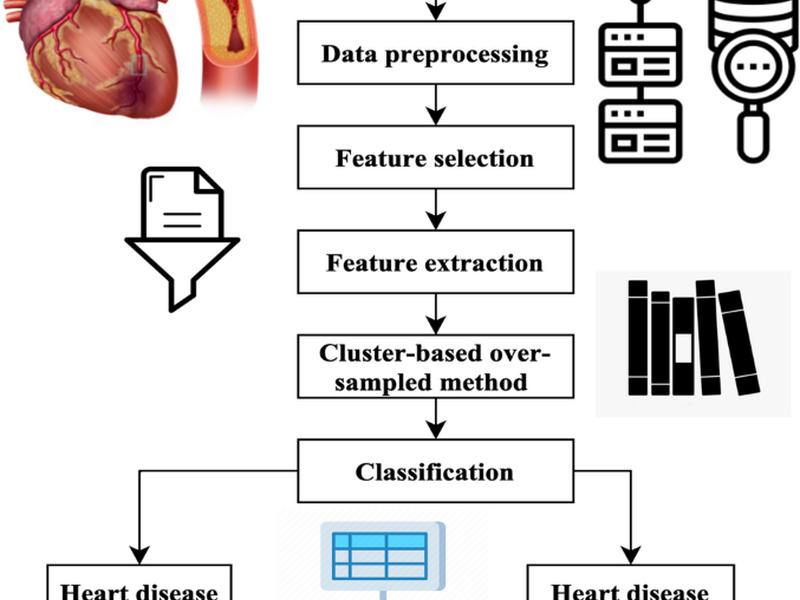This article discusses the use of advanced machine learning and deep learning techniques in diagnosing and predicting heart disease. By incorporating feature selection and dimensionality reduction methods, the proposed framework aims to improve the accuracy and reliability of heart disease diagnosis and prognosis. The hybrid system also includes data gathering, pre-processing, and classification stages to ensure data integrity and model efficacy.

